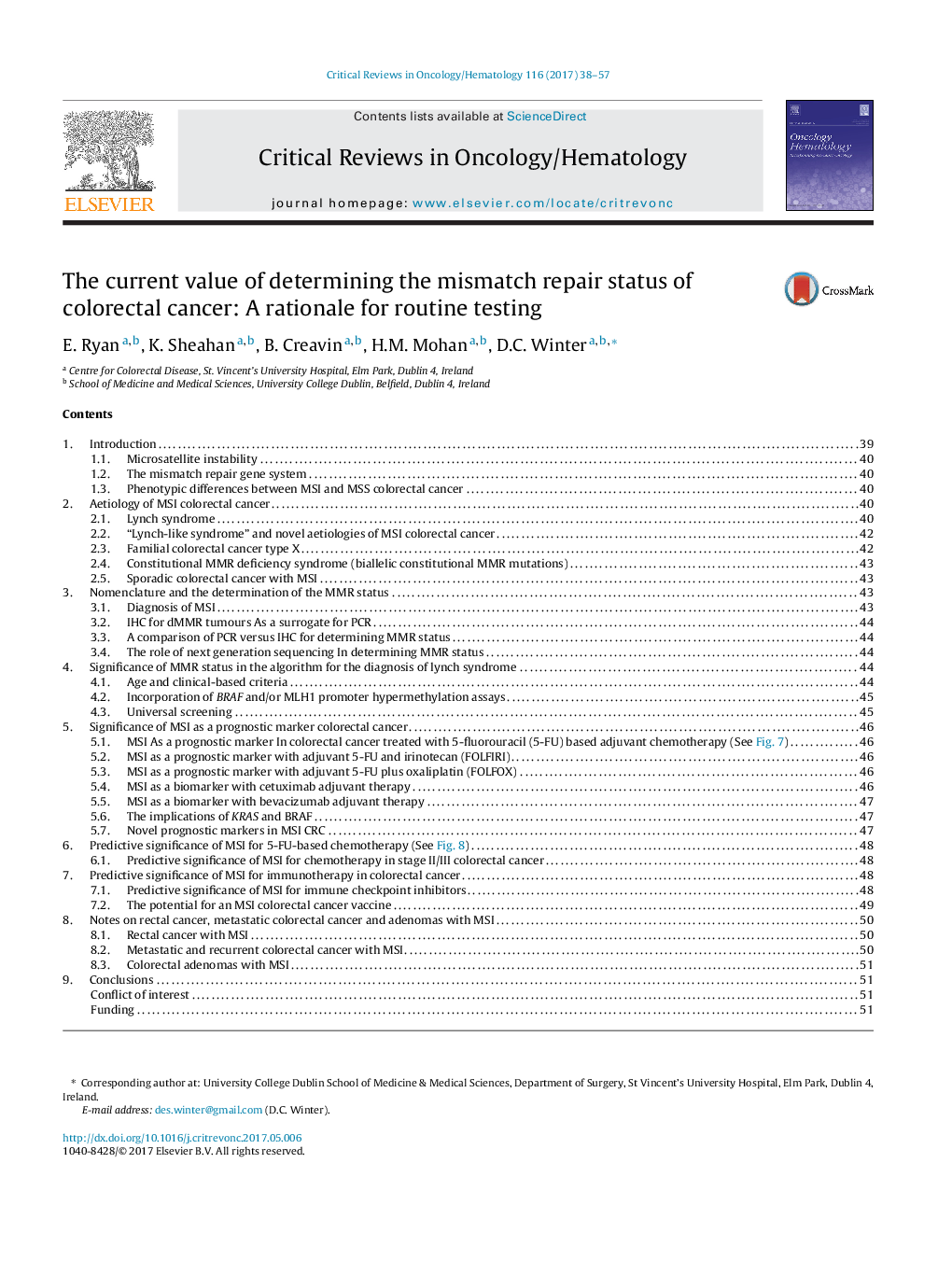| کد مقاله | کد نشریه | سال انتشار | مقاله انگلیسی | نسخه تمام متن |
|---|---|---|---|---|
| 5664117 | 1590701 | 2017 | 20 صفحه PDF | دانلود رایگان |
- 15% of colorectal cancer displays MSI that is reflective of a deficient MMR system (dMMR).
- MSI is commonly caused by acquired MLH1 hypermethylation but may also be due to Lynch Syndrome.
- Association of sporadic MSI with BRAF mutation and MLH1 promoter hypermethylation offers an exclusion criterion for genetic testing.
- MMR status is increasingly used for prognostic stratification in colorectal cancer.
- MMR status may predict response to chemotherapy and novel immunotherapies.
Colorectal Cancer (CRC) is the third most prevalent cancer in men and women. Up to 15% of CRCs display microsatellite instability (MSI). MSI is reflective of a deficient mismatch repair (MMR) system and is most commonly caused by hypermethylation of the MLH1 promoter. However, it may also be due to autosomal dominant constitutional mutations in DNA MMR, termed Lynch Syndrome. MSI may be diagnosed via polymerase chain reaction (PCR) or alternatively, immunohistochemistry (IHC) can identify MMR deficiency (dMMR). Many institutions now advocate universal tumor screening of CRC via either PCR for MSI or IHC for dMMR to guide Lynch Syndrome testing. The association of sporadic MSI with methylation of the MLH1 promoter and an activating BRAF mutation may offer further exclusion criteria for genetic testing. Aside from screening for Lynch syndrome, MMR testing is important because of its prognostic and therapeutic implications. Several studies have shown MSI CRCs exhibit different clinicopathological features and prognosis compared to microsatellite-stable (MSS) CRCs. For example, response to conventional chemotherapy has been reported to be less in MSI tumours. More recently, MSI tumours have been shown to be responsive to immune-checkpoint inhibition providing a novel therapeutic strategy. This provides a rationale for routine testing for MSI or dMMR in CRC.
Journal: Critical Reviews in Oncology/Hematology - Volume 116, August 2017, Pages 38-57
